WE ACT for Environmental Justice was founded in 1988 to address the environmental racism impacting West Harlem. WE ACT remains connected to their Harlem roots, with more than 800 members supporting their mission to build healthier communities by ensuring that people of color and low-income participate meaningfully in the creation of just and equitable environmental policies and practices. WE ACT has grown to become a nationally recognized leader in the environmental and climate justice movements. It run programs throughout Northern Manhattan and advocate for policies at the city, state, and federal levels – having opened a Federal Policy Office in Washington, DC in 2012.
Learn more about WE ACT’s mission to build healthy communities by ensuring that people of color and/or low income residents participate meaningfully in the creation of sound and fair environmental health and protection policies and practices.
Climate Justice:
Reducing Pollution & Greenhouse Gas Emissions
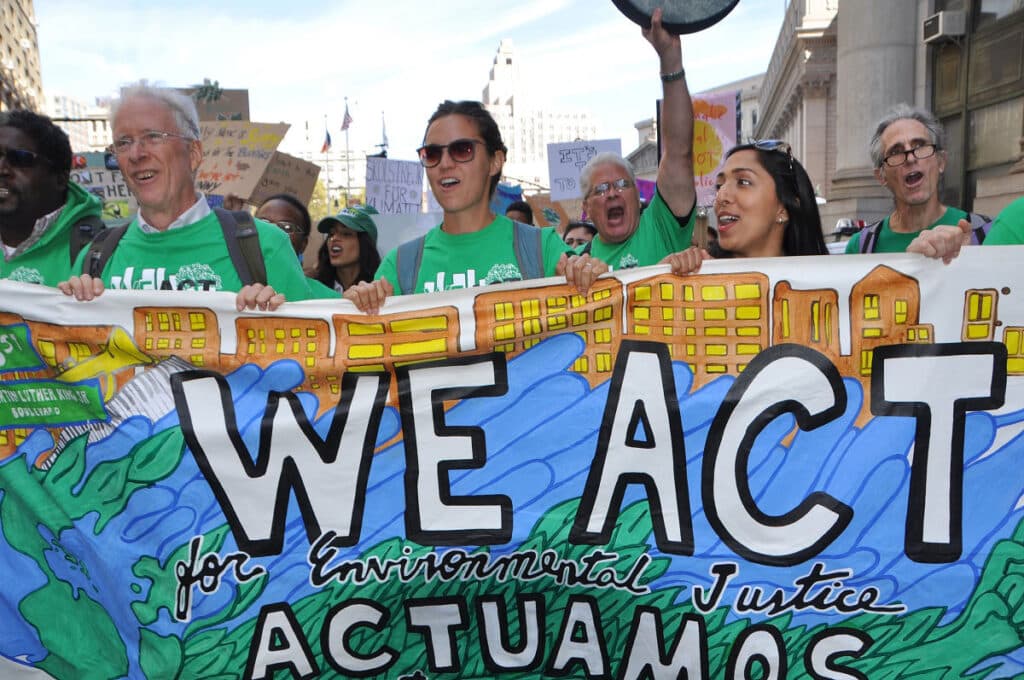
Low-income communities and communities of color are hit first and worst by the impacts of climate change. In New York City, buildings are the greatest source of air pollution – even more than all the trucks, buses, and cars combined. Buildings produce nearly 70-percent of the city’s greenhouse gas emissions, which are responsible for climate change.
WE ACT is part of a New York City coalition pursuing legislation that will eliminate natural gas hookups in new construction, so that we can begin to phase out the use of fossil fuels in buildings. Not only will this significantly reduce building emissions, but it will also reduce harmful indoor air pollution. Studies have shown that cooking with a gas stove just once a week can produce 60-percent more pollution inside your home than would be legally permissible outdoors.
We are also working with groups throughout New York State to decarbonize and electrify homes and buildings. In fact, we have started a pilot program that will measure the impact of switching from gas stoves to electric induction stoves in affordable housing.
Of course, eliminating the use of natural gas and other fossil fuels in buildings is only part of the solution. We’re also working to ensure that the electricity needed to replace this energy comes from renewable sources.
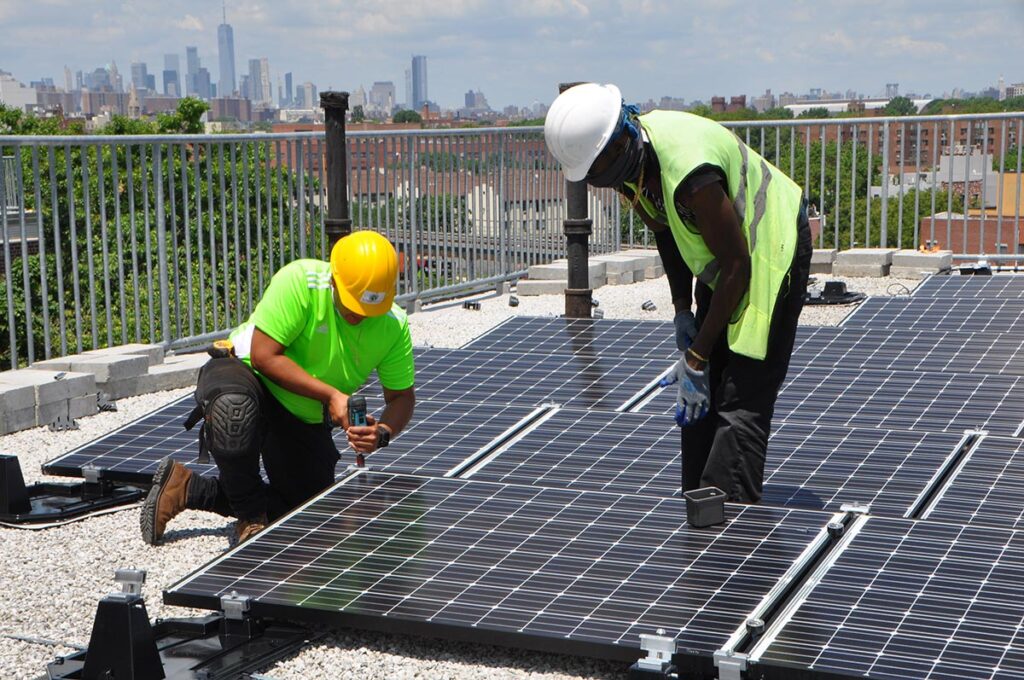
Our Solar Uptown Now program is training members of our community to install solar panels on the roofs of affordable housing in Northern Manhattan. We are also working with the New York City Public Housing Authority (NYCHA) on Community Power, a community solar project for which we trained NYCHA residents to install panels on the roofs of developments and are doing outreach in the community to ensure that affordable, clean power gets to those who need it. And training all of these solar installers has led to the formation of a solar workers cooperative, SUNS, which is developing and installing projects of their own.
Climate Justice:
Addressing the Health Inequities of Extreme Heat
Extreme heat is the deadliest impact of climate change, and it disproportionately impacts communities of color. In New York City, 50 percent of the heat-related deaths are among Black/African American people, even though they make up only 25 percent of the city’s population.
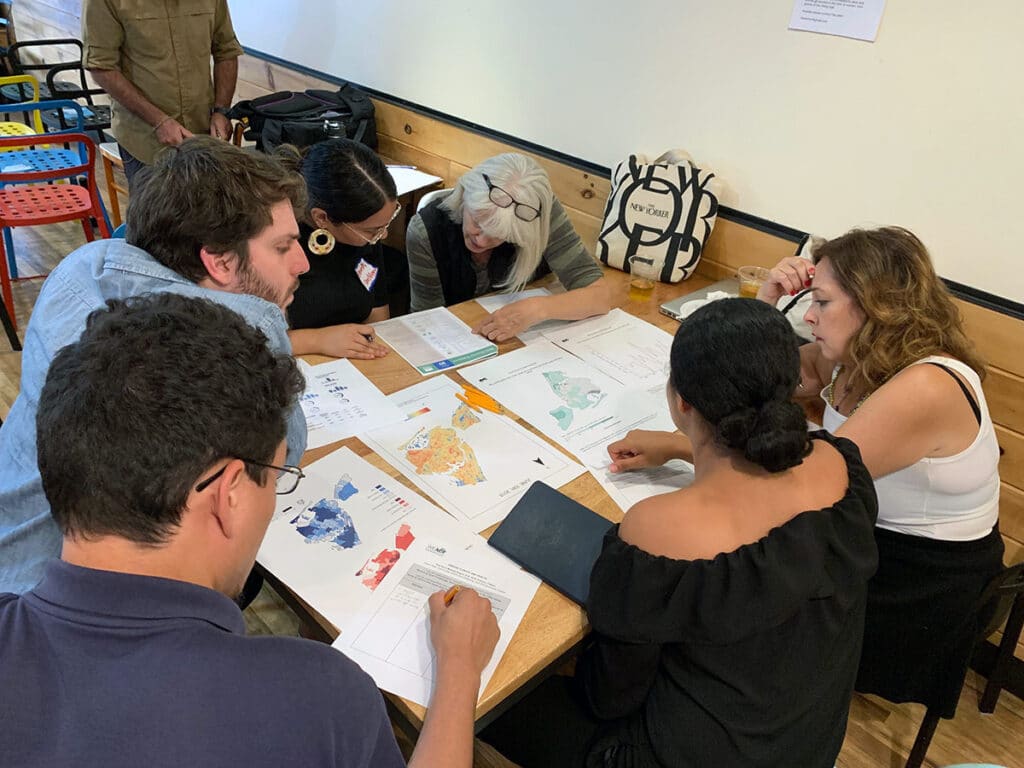
With our Heat, Health, and Equity initiative, we are finding solutions to extreme heat and the forces of inequity that make the heat more dangerous for people of color. We have been raising awareness of heat health inequities, the impact they have on our community, and what programs are currently available to mitigate that impact.
We are also advocating for community-driven policy recommendations, from working with the City to improve its Cooling Center Program to shaping state policy that would allow Home Energy Assistance Program funds be used to convert homes to cleaner and more efficient forms of cooling and increase overall funding for cooling through weatherization and direct cooling funding, such as the purchase, installation, and operation of air conditioners.
Cumulative Impacts:
Reducing Exposure to Toxic Chemicals
WE ACT has a long history of improving programs and advancing legislation to reduce exposure to lead, mold, and other toxics that disproportionately impact low-income communities and communities of color. Recently, with our New York State partners, we have been able to pass best-in-nation legislation like the Child Safe Products Act, which ensures parents know what materials are used in children’s products and gives the state the authority to ban the most dangerous chemicals, like carcinogens and neurotoxins. We have also passed legislation that reduces exposure to dangerous chemicals such as PFAS and phthalates in New York State.
In addition, we have been raising awareness of toxics in personal care products, which are largely unregulated and many of which – especially those being marketed to people of color – contain toxic chemicals. We have worked with academic partners to help educate the community about this issue, and are currently conducting a survey to inform our future campaign. And our Federal Policy Office has been working with congressional leaders to advance legislation that will help address the issue.
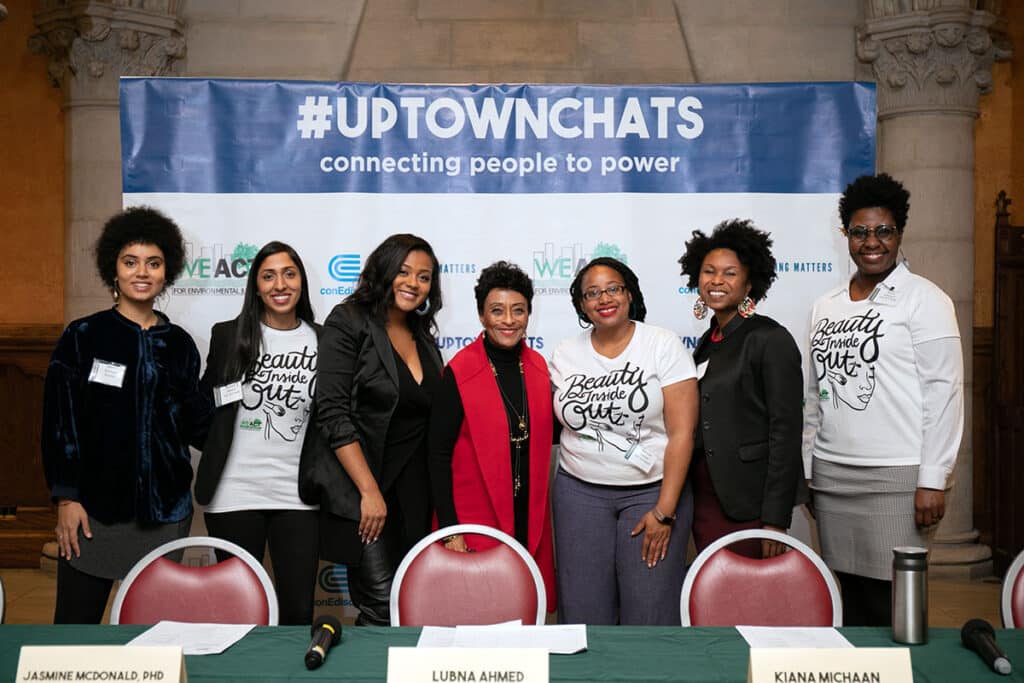
A panel discussion of racial bias in beauty standards and how it results in toxic products being marketed to women of color.
Learn More
In 2018, WE ACT celebrated 30 years of fighting for justice and building healthy communities for all. Learn more about WE ACT’s history below.
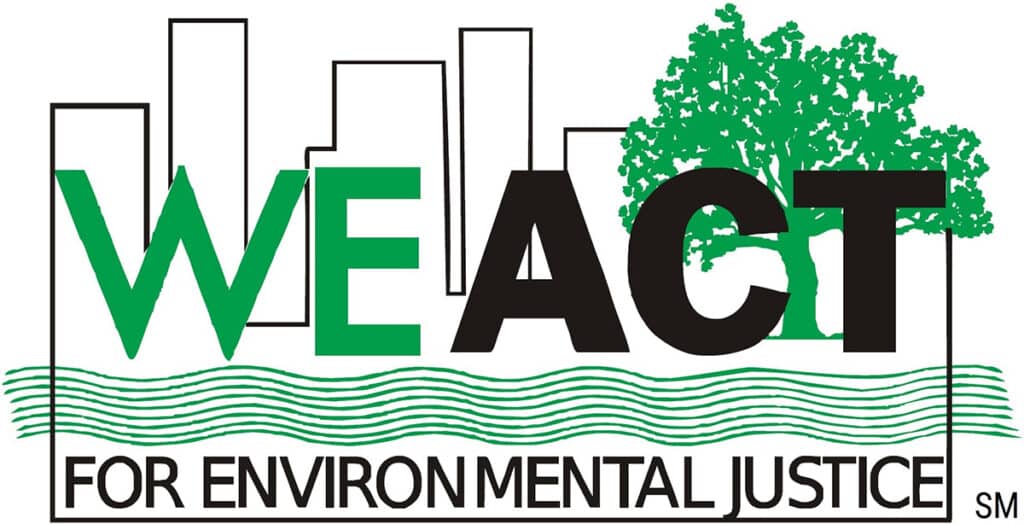
To learn more about WE ACT for Environmental Justice and their mission, visit weact.org and follow them on Twitter and Instagram @weact4ej, and on Facebook @weactforej.
